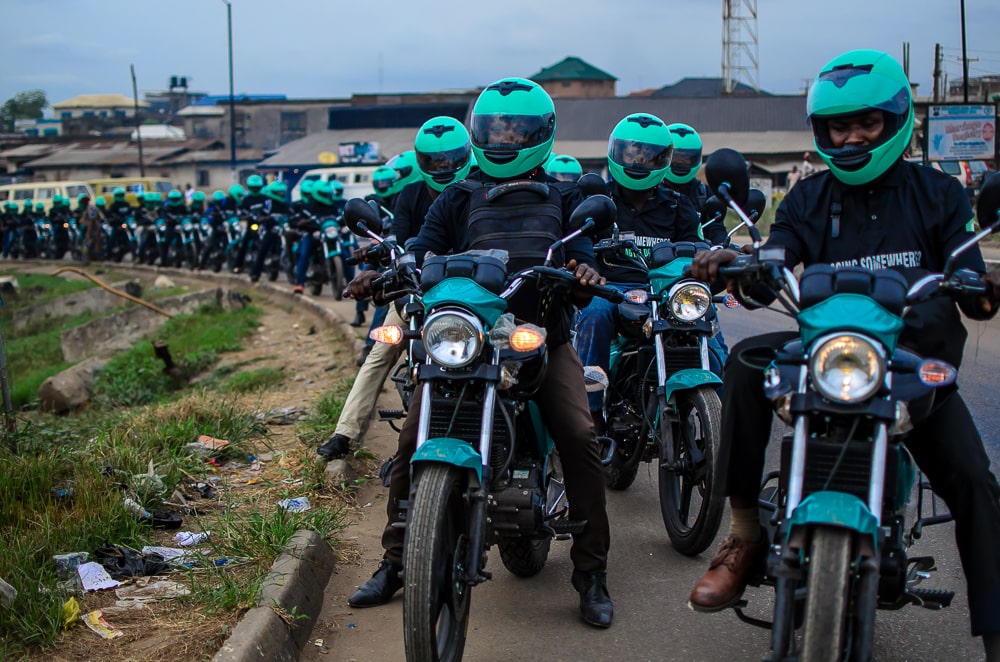Okadas have dominated the Lagos transportation landscape for decades. Despite several attempts at proscribing them through legislation, it has, more than the ubiquitous danfo, always represented true ease of movement.
Lagos is a city plagued by devilish traffic jams and it is not unusual to hear people saved from missing flights and important meetings by abandoning their cars to “fly an Okada”.
Making a case for bike-hailing
When Uber came into the Nigerian market, it was immediately clear how it would disrupt the existing cab services. Lagos Yellow taxis were rickety things that charged exorbitant prices and Uber, with its initial insistence on car quality as well as fair pricing, quickly displaced yellow cabs as the main modes of taxi use.
Making a case for disruption of how bikes were hailed was a more difficult proposition. Okadas are not difficult to pick up; you simply stood at a bus stop and haggled with riders till you agreed on an appropriate price.
When Gokada launched in Lagos in 2018, it seemed like a long-shot that bike hailing would go on to form such a critical component of the city’s tech ecosystem.
I was among the early doubters:
https://twitter.com/Olumuyiwa__/status/1029056932634607618
In the one year since this tweet, a fierce battle for the heart and soul of bike hopping Lagosians is raging. Enter Gokada’s competitors: Max.ng, who were the first on the scene in 2016, O’Pay and Safeboda.
In August, Falim Saleh, the Gokada CEO and co-founder took one look at his company’s app and said to himself, “This app really, really sucks”.
Here is an actual quote from his Medium post:
How could I be the CEO of Gokada, the company that pioneered motorcycle ride-hailing in Nigeria and be experiencing this?
…I was disappointed in Gokada but most of all, I was disappointed in myself. I told the pilot to pull over to the side of the road, I would hop over the median and wait for an Uber.
It led to an unprecedented two-week closure to fix an app which had been widely knocked by users on Google’s PlayStore.
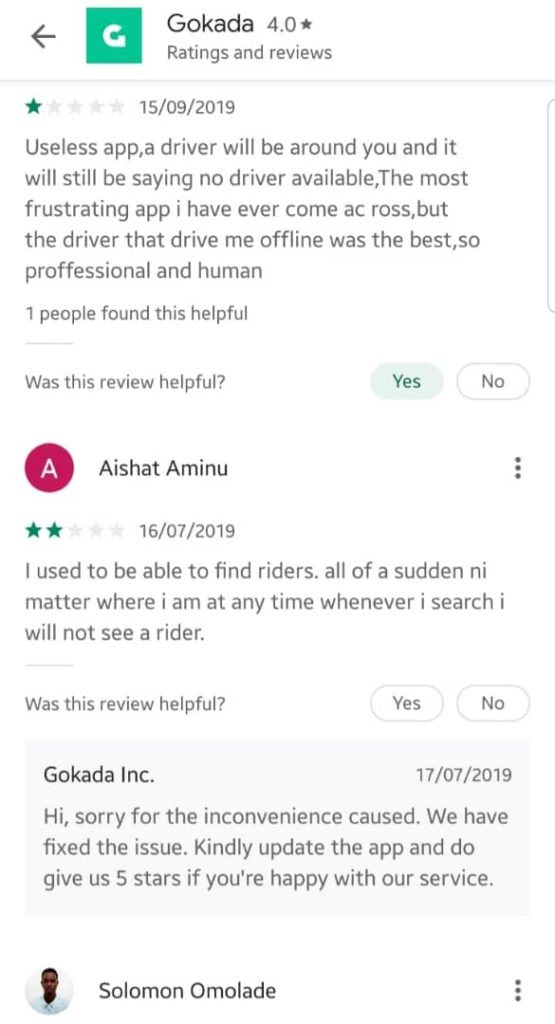
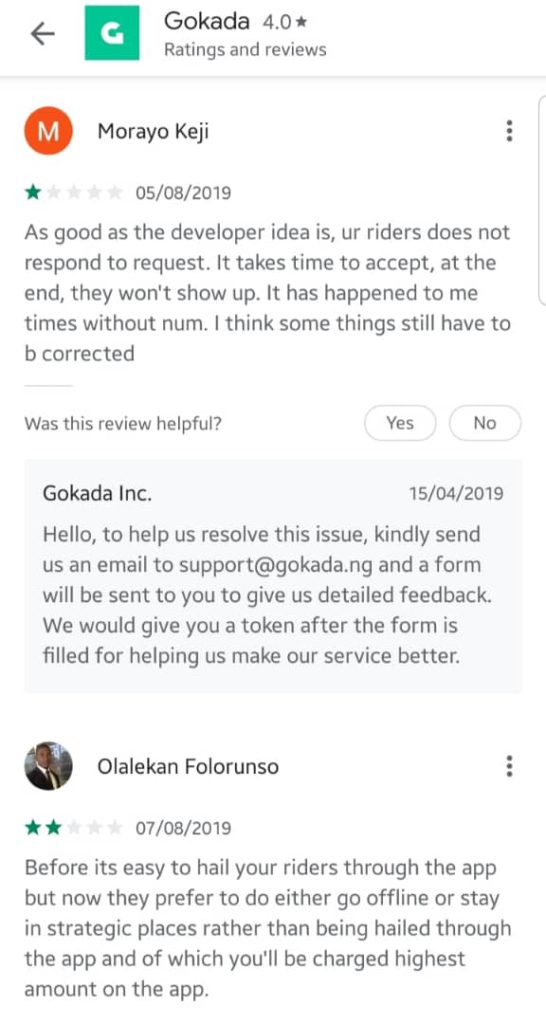
Was it a coincidence Saleh’s epiphany came hot on the heels of the blitzkrieg launch of OPay’s bike hailing service?
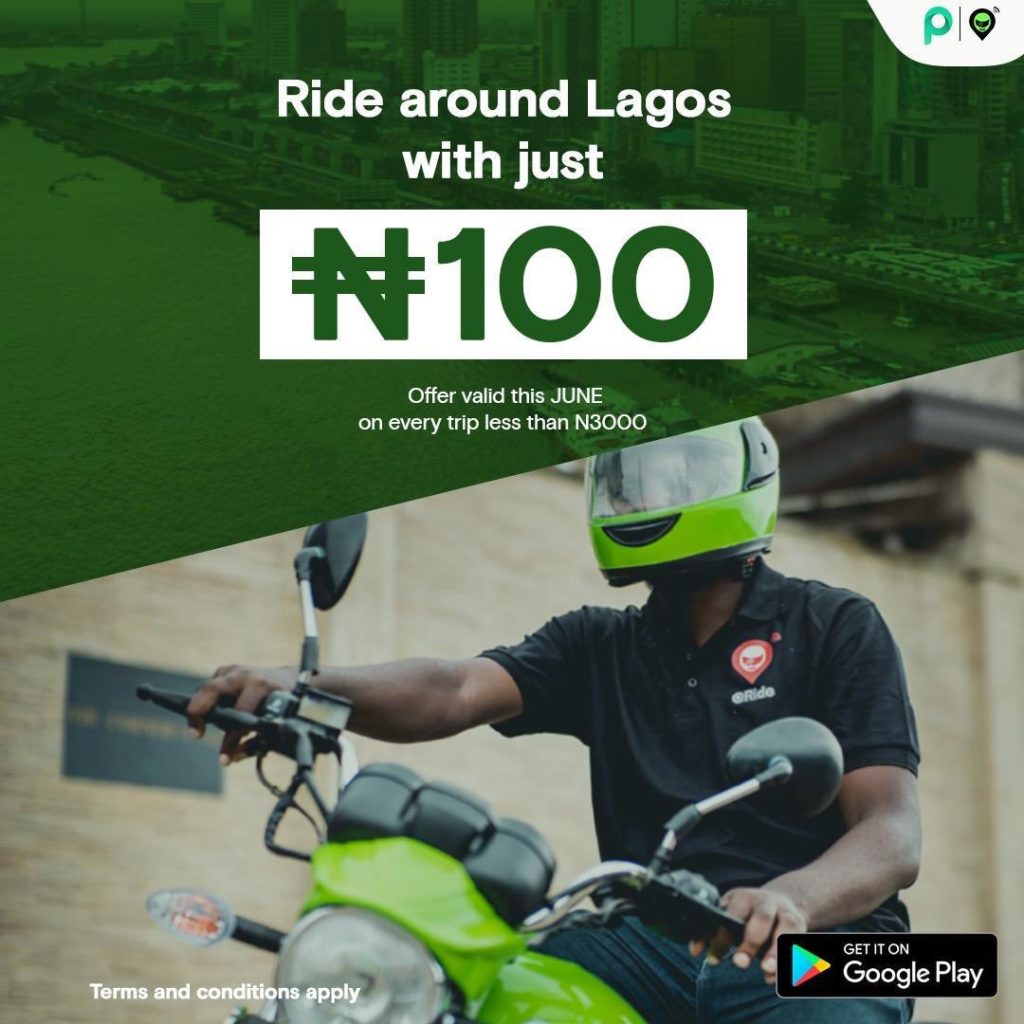
OPay’s differentiator is a super-app
OPay’s entry into the Lagos market has all the makings of a company looking, not to keep up with existing competition, but to crush it.
Their marketing efforts stared at you on billboards and flyers all over the city; you were not safe online too, as they harangued you about taking your first ride for free.

They didn’t hesitate to poach riders from the competition, reportedly offering better pay.
Ebunoluwa Sipe, a former Head of Driver Support/Experience at Gokada joined O’Pay as Senior Operations Manager.
She is one of four confirmed former senior Gokada staffers who now work for OPay.
MAX, on the other hand, did not lose executives to ORide, showing a remarkable people resilience which should not be taken for granted.
It is easy to forget that Max.ng could easily have been the frontrunners of the bike hailing industry. Instead, an initial focus on the delivery side of their business means that today, they are playing catch up.
Chinedu Azodoh, named in Forbes Africa’s 2019 “30 Under 30 Class” is the company’s Chief Growth Officer and co-founder. In June 2019, they raised $7 million funding round led by Novastar Ventures.
Today, the company lays claim to 1 million completed trips. It is unclear what percentage of this figure represents actual bike hailing customers, since the company is also one of Jumia Nigeria’s leading delivery partners.
It is tempting to get caught up in the corporate intrigues, but one often wonders in terms of efficiency, how do these apps work when we stack them against each other?
I took a trip around Lagos with three different bike hailing services to see how each one handles user experience on its app, rider availability as well as billing.
Max.ng
Max call its riders “Champions” and the app was pretty easy on the eyes and easy to use. The maps seemed a little jumpy but on the upside, I only had to wait three minutes to be connected to a “Champion”

Unfortunately, this champion was at least 20 minutes away from me. If you’re waiting for a cab in the comfort of your house, that’s not the worst proposition, but if you’re at a crowded bus stop, that’s a different matter entirely.
I tried Max later in the day and it was pretty much the same story. Both attempts to use Max required 20-30 minute wait times. If you’re familiar with Lagos, absolutely no one wants to wait that long to find an Okada.
Pros: Great, easy to use app, courteous riders, really pretty bikes
Cons: Couldn’t seem to find one near me whenever I needed them.
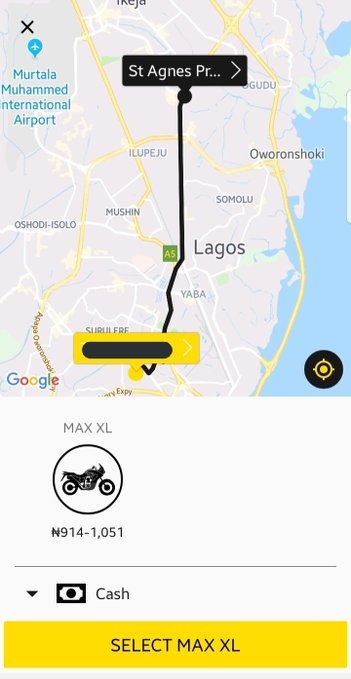
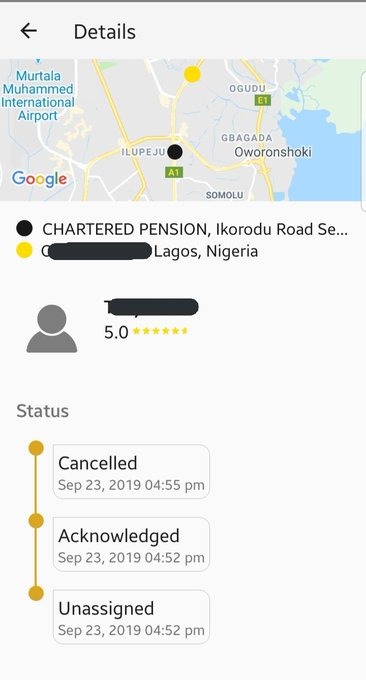
Gokada
I was convinced Gokada would be an easier workaround given their recent re-brand. Immediately I downloaded and opened the app, I was super excited.
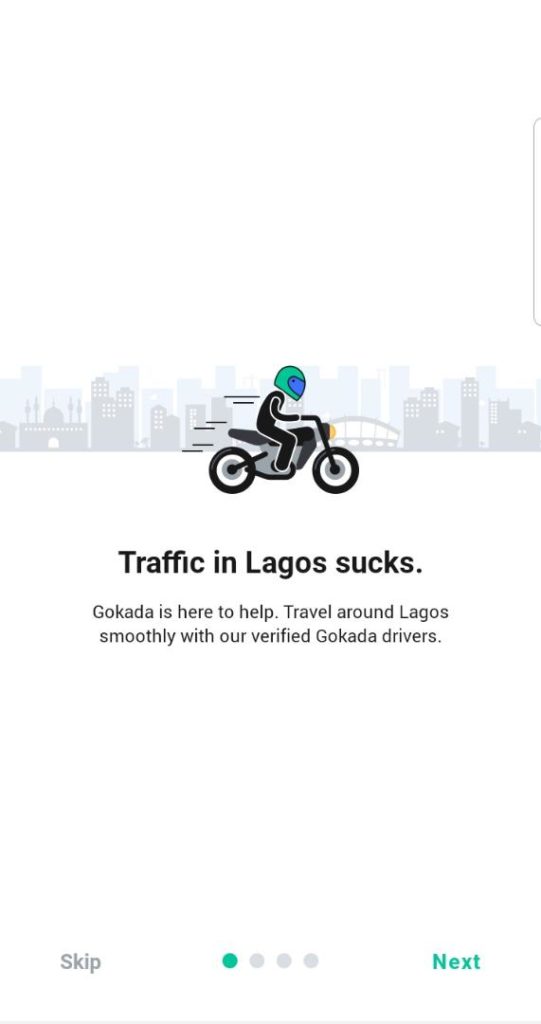
That’s where all the good stuff ended, because for the next two days, I battled with verifying my phone number on the app with little success.

By the time I had tried a third phone number, I had given up.
Pros; It looks like a pretty app, they call their riders “Pilots” (Yes, I prefer Pilot to Champion)
Cons: Well…now that seems obvious enough. It’ll be interesting to hear from other Gokada users if this particular verification error is commonplace.
OPay
The OPay app might not win any UI awards but it is very big on privacy, requiring not just passwords, but SMS codes if you log out of the app for extended periods.
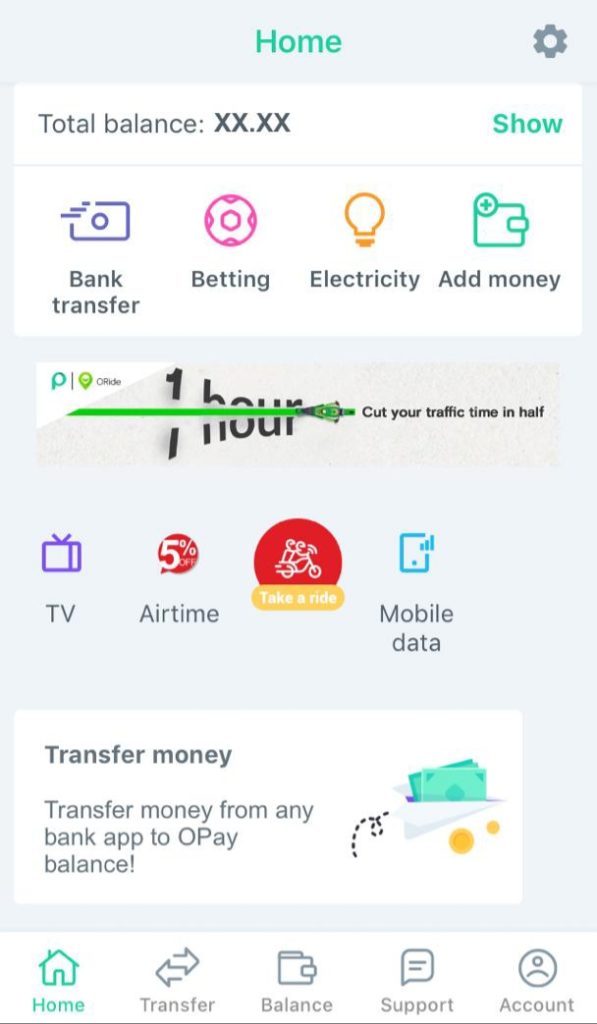
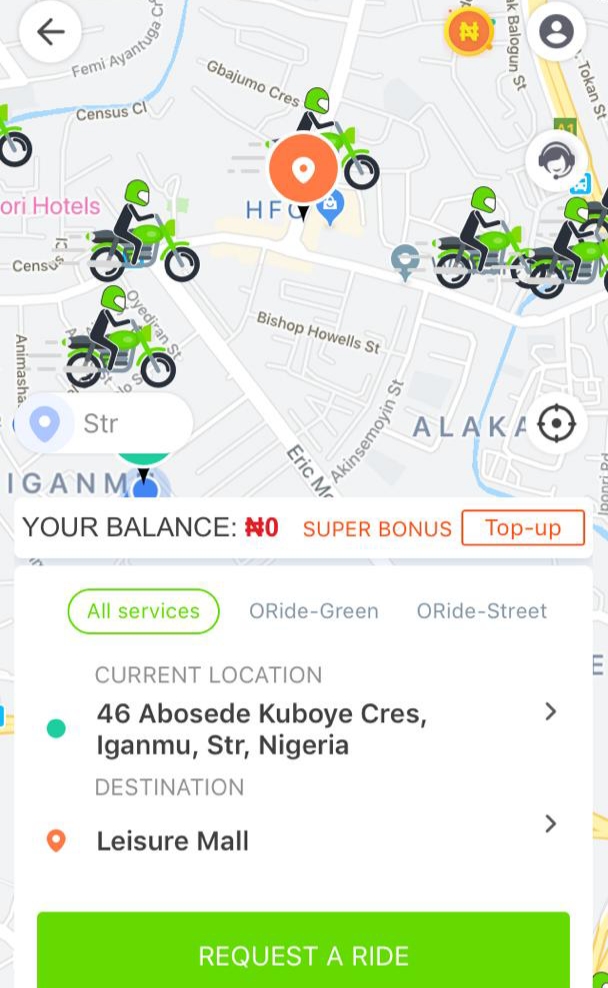
It took about ten minutes to find a rider with OPay, but it was all rather straightforward from there.
Pros: I don’t see anyone hacking into your account on this app, they seem to have a more even spread of riders.
Cons: There seems to be a lot more insistence on using their wallet, which can be stressful when you want to take really short trips.
With the exception of OPay, I tried all the bike hailing apps from bus stops across Lagos, as that’s where most of them are concentrated. Having said this, it feels like early days yet to determine a clear winner of the bike hailing scene.
While there’s significant investment in the sector, attempting to put bikes at the easy reach of a majority of people in Lagos will definitely take a while, especially when they’re competing with regular bikes who seem to be easier to find.
This will be good news for Uber and Taxify as it essentially means that cab hailing and bike hailing services will continue to serve different subsets of commuters at this time.









